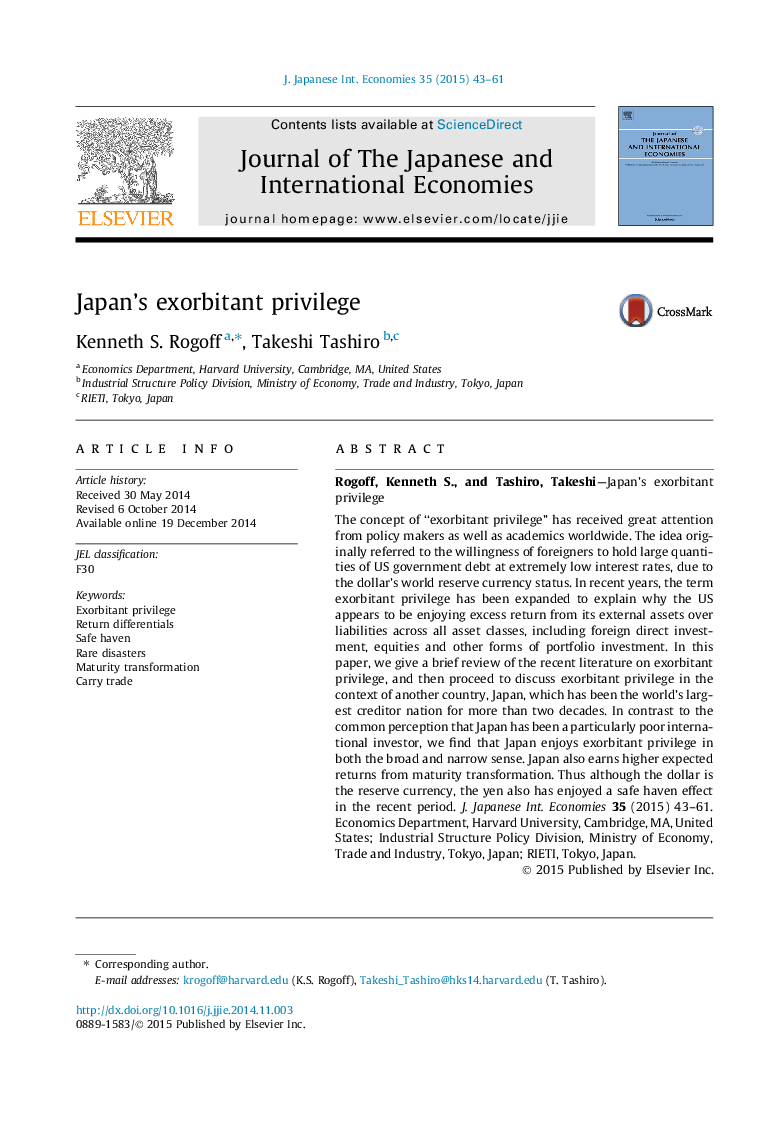| Article ID | Journal | Published Year | Pages | File Type |
|---|---|---|---|---|
| 965196 | Journal of the Japanese and International Economies | 2015 | 19 Pages |
Abstract
The concept of “exorbitant privilege” has received great attention from policy makers as well as academics worldwide. The idea originally referred to the willingness of foreigners to hold large quantities of US government debt at extremely low interest rates, due to the dollar's world reserve currency status. In recent years, the term exorbitant privilege has been expanded to explain why the US appears to be enjoying excess return from its external assets over liabilities across all asset classes, including foreign direct investment, equities and other forms of portfolio investment. In this paper, we give a brief review of the recent literature on exorbitant privilege, and then proceed to discuss exorbitant privilege in the context of another country, Japan, which has been the world's largest creditor nation for more than two decades. In contrast to the common perception that Japan has been a particularly poor international investor, we find that Japan enjoys exorbitant privilege in both the broad and narrow sense. Japan also earns higher expected returns from maturity transformation. Thus although the dollar is the reserve currency, the yen also has enjoyed a safe haven effect in the recent period.
Related Topics
Social Sciences and Humanities
Economics, Econometrics and Finance
Economics and Econometrics
Authors
Kenneth S. Rogoff, Takeshi Tashiro,
